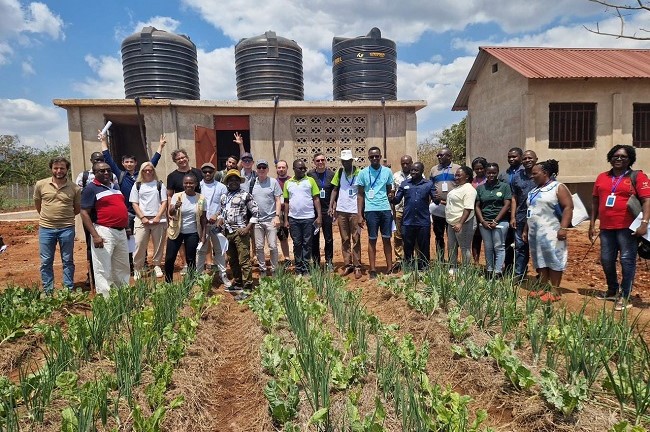In an event aimed at advancing sustainable agricultural practices, the PrAEctiCe, a Horizon Europe project funded by the European Union, hosted an Online Agroecology Summit, bringing together a diverse array of participants, including Indigenous farming communities, researchers, government representatives, and industry stakeholders.

The “Facilitating Agroecological Transition among Smallholder Farmers through Technology and Innovation” summit focused on enhancing agroecological practices across Africa.
The summit served as a platform for dialogue on integrating technology and innovation into smallholder farming, aiming to create climate-smart agri-food systems that align with the United Nations’ sustainable development goals. Participants discussed the critical role of agroecological aquaculture systems within Africa’s food system, addressing current challenges and exploring future opportunities.
Key discussions revolved around implementing frameworks for adopting agroecological practices, fostering stakeholder collaboration, and empowering smallholder aquaculture producers. The event underscored the importance of collective action in driving sustainable agricultural transformation, highlighting how technology can support traditional practices and improve food security across the continent to enhance the resilience of smallholder farmers.
The event showcased how advanced technologies like remote sensing, digital data, and Geographic Information Systems enhance sustainable smallholder aquaculture operations’ efficiency, selection, and monitoring. The emphasis was on the integration of digitisation and innovation in agroecological practices.
Prof. Domen Mongus from the University of Maribor presented the PrAEctiCe project’s key technology, a Digital Decision Support Tool being developed through the project to facilitate the transition to agroecology for smallholder farmers in East Africa. The tool will be available as an App for farmers and advisors.
The tool prioritises quality data input and will serve as a monitoring centre to digest data collected from farms and agricultural locations registered. The App for farmers will hold usable information, and the advisors’ App will include a higher management tool.
Lopo Carvalho, Technical and Commercial Consultant at Aquagri, noted that the challenge for smallholder farmers is the limited capacity to use sensors to gather data, so a database with simple indicators will be available for farmers to report from. The interactive platform of feeding, digesting, and outputting usable information will also account for digital inclusion and literacy. Stakeholders who have no smartphones will receive notifications and information through Multimedia Messaging Services or text messaging and will have access to their advisors for guidance.
Million Belay, General Coordinator of AFSA, delivered a keynote address: “The role of agroecology in sustainably enhancing productivity, food security, and profitability of global food systems.” He optimistically said, “Our Kenyan partners are launching an agroecology policy in Kenya. Many things are happening, and the wind is shifting to agroecology.”
During a summary of breakout sessions, Nicholas Outa a PhD Scholar in Fisheries and Aquaculture at Maseno University, emphasised that we should view this knowledge as valuable rather than inferior. It serves as a rich reservoir of practical wisdom cultivated over generations that can enhance contemporary farming practices. Outa also highlighted the importance of co-creation between researchers, policymakers, and Indigenous farmers.
Prof. Harun Okello, an agroecology specialist at Maseno University, advocated for a shift in agricultural decision-making processes, asserting, “We should help farmers by moving findings from the field to the table where decisions are made.”
The statement underscores the necessity of involving male and female farmers in discussions about agricultural advancements and policies directly affecting their livelihoods.
In conclusion, the summit promoted strengthening the food system’s resilience through sustainable agricultural productivity, creating opportunities for employment and trade for women and youth in Africa by combining traditional agricultural knowledge with modern digital tools.
The project will hold Open Days at its three living labs in Kenya, Uganda, and Tanzania during the latter half of the project. These events will showcase the technologies that validate the Decision Support Tool data and prove the agroecology systems’ scalability in optimising farming practices. The aim is to demonstrate the potential and benefits of agroecological methods to stakeholders and the public.
